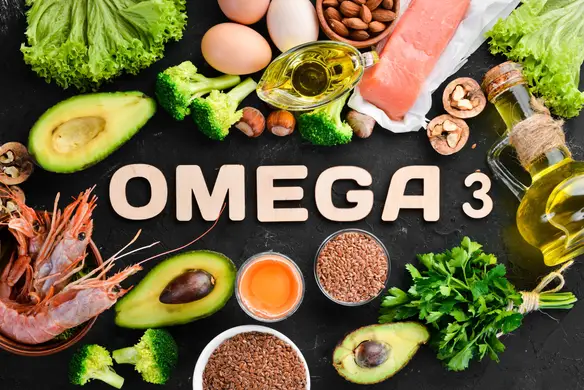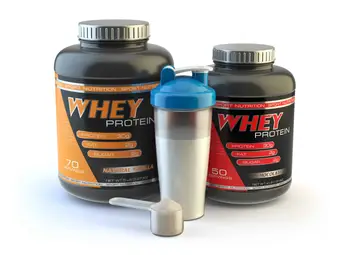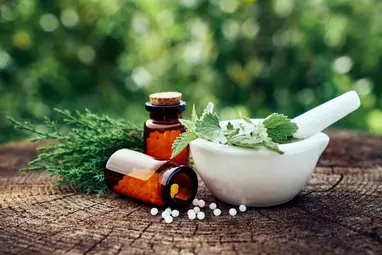Best 15 Omega 3 Rich Indian Foods

Best 15 Omega 3 Rich Indian Foods
Posted on 13th Apr, 2023
How many times have you heard about fats being the scariest nutrient? Quite often, right? But this fatty acid known as Omega-3 fatty acid is a good fat and among the most essential fatty acids. Omega-3 fatty acids offer multiple health benefits, from keeping our hearts healthy to maintaining cholesterol levels and diabetes control, and the list of benefits is never-ending.
However, Omega 3 can't be produced in our body, and hence we need to take them orally with our diet through foods or supplements.
With that said, due to substantial health benefits, demand for Omega 3-rich food sources has ascended even more after the COVID-19 pandemic situation. This article will discuss the 15 best omega-3-rich Indian food sources, which are readily available in the market.
About omega-3 fatty acids and their types
Omega-3 fatty acids have 3 distinct types, classified as:
- Alpha-linolenic acid (ALA)
- Eicosapentaenoic acid (EPA)
- Docosahexaenoic acid (DHA)
While sources for ALA are mainly plant oils, sources for DHA and EPA are fish and seafood. And all three of them have an important role to maintain optimal health.
Omega-3 supplements
Many times, along with food sources, supplements are also prescribed to maintain the level of omega-3 fatty acids in our body, among these, Cod liver oil and fish oil are famous.
Cod liver oil - Cod liver oil is derived from the livers of cod fish and is a rich source of both EPA and DHA, the two main types of omega-3s that are particularly important for heart and brain health.
In addition to omega-3s, cod liver oil is also a good source of vitamin A and vitamin D.
You can buy “The Bodyfirst Cod Liver Oil supplement” referred by our health expert. This supplement is by far the best in quality and tested for its purity and potency as well.
Fish Oil - Fish oil supplements are usually made from the body of fatty fish such as salmon, mackerel, and sardines. These supplements contain a concentrated amount of EPA and DHA and are available in liquid and capsule form.
However, It's important to be mindful of the quality while choosing the supplement. This fish oil is carefully constructed and is proven to provide a high-quality nutrient value that will fulfill your daily need for omega-3 fatty acids completely.
Best Omega 3 rich foods
- Salmon - This fatty fish is a great source of omega-3 fatty acids, with one serving to provide over 100% of the daily recommended intake. Omega-3 content in salmon is 1.1 gm to 1.9 gm
- Flaxseeds - These tiny seeds are packed with omega-3s, as well as fiber and antioxidants. They can be added to smoothies, oatmeal, or baked goods for a nutritious boost. Omega-3 content in Flaxseed is 7.25 gm in 1.0 tbsp & in Flax seeds oil, it is 6.703 g in 1.0 tbsp.
- Walnuts - A handful of walnuts contains more than double the recommended daily intake of omega-3s. They're also enriched with a good amount of protein and fiber. Omega-3 content in Walnuts: 2542 mg in a single serving (7 walnuts)
- Soybeans - Soybeans and soy products like tofu and tempeh are great vegetarian sources of omega-3s. Soybeans are also a good source of omega-6 fatty acids. Omega-3 content in Soybeans: 670 mg in ½ cup of serving.
- Chia seeds - These seeds are another great plant-based source of omega-3s. They can be added to yogurt, oatmeal, or salads for a crunchy texture. Omega-3 content in Chia seeds is 4915 mg in 1 ounce or 5.055 mg in 28 gm.
- Eggs - Eggs from chickens that have been fed a diet rich in omega-3s can contain up to four times more of these fatty acids than regular eggs. Omega-3 content in Egg is 340 mg ALA & 75-100 mg in 1 egg.
- Mustard seeds - These tiny seeds contain a high concentration of alpha-linolenic acid (ALA), which is converted to EPA and DHA in the body. Omega-3 content in Mustard seeds is 100 mg in 1tspn.
- Spinach - This leafy green vegetable contains a good amount of ALA, making it a great plant-based option for omega-3s. Omega-3 content in Spinach is 370 mg in 100 gm.
- Cauliflower - This cruciferous vegetable is another surprising source of omega-3s, with one cup providing about 10% of the daily recommended intake. Although the omega-3 content isn't as high as found in other foods, it's still an affordable source to add up nutritional value to your diet. Omega-3 content in Cauliflower is 37 mg in 1 cup.
- Sardines - These small fish are a great source of EPA and DHA, two types of omega-3s that are especially important for heart health. Omega-3 content in Sardines is 1480 mg in 100 gm.
- Shrimp - Shrimp is a low-fat source of omega-3s, with four ounces providing about 10% of the daily recommended intake. Omega-3 content in Shrimp is 267 mg in 3.0 oz.
- Canola oil - This cooking oil contains a good balance of omega-3s and omega-6s, making it a healthy option for cooking and baking. Omega-3 content in Canola oil is 1279 mg in 1 tbsp.
- Kidney beans - These beans are a good source of ALA, and can be added to soups, salads, and other dishes for a nutritional boost. Omega-3 content in Kidney beans is found to be 0.10mg in ½ cup.
What is the daily recommended allowance for Omega 3?
The amount of omega-3s you should consume per day depends on your age, sex, and overall health status. The recommended daily intake for adults is at least 250-500 milligrams of combined EPA and DHA.
For vegetarians and vegans who do not consume fish or fish oil supplements, the recommended daily intake of ALA, a type of omega-3 found in plant-based foods, is 1.1 grams per day for women and 1.6 grams per day for men.
Conclusion
Omega-3 fatty acids are essential fats that our bodies need but cannot produce on their own. They are important for maintaining heart, brain, and eye health, as well as reducing inflammation in the body.
While there are plenty of options for Omega-3-rich Indian food, there are supplements like fish oil and cod liver oil for people who can’t meet their daily dietary need for Omega-3 with their daily food intake.
However, it's important to note that consuming too much omega-3s can also have negative health effects, such as an increased risk of bleeding. Therefore, it's best to consult with a healthcare provider or registered dietitian to determine the appropriate amount for your individual needs.

Health articles from our experts

List of Top Whey Proteins for Muscle Gain

Benefits of Protein Powder on Men's and Women's Health

A complete guide on sexual wellness supplements for couples

List of Top 10 Ayurvedic Medicine for Constipation

What Is The Right Dosage for Omega-3 Supplements?

Top 10 Sexual Wellness Supplements Brands in India

The Power of Probiotics: Nurturing Gut Health for Overall Wellbeing

Boosting Libido Naturally: A Guide to Effective Sexual Wellness Supplements

Multivitamins for Hair, Skin, and Nail Health: Enhancing Your Natural Beauty

